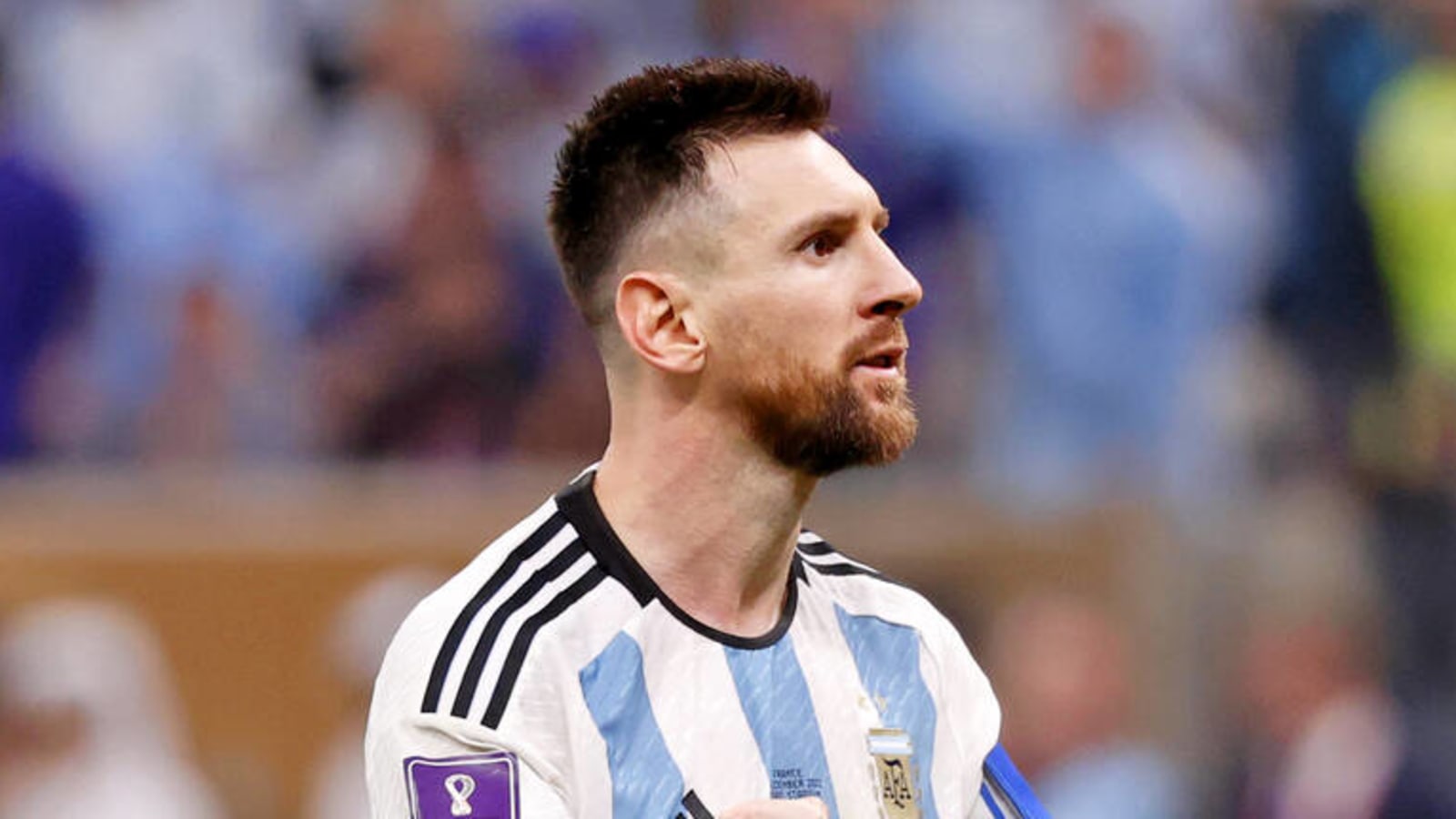
Miss on Messi? That's no problem for growing Saudi soccer league
Lionel Messi shunned Saudi Arabia for Major League Soccer, but it may not matter for the country's growing professional league.
While the Argentine superstar was declaring his love for Miami, the Saudi Pro League was busy snatching up World Cup, Champions League and Ballon D'Or winner Karim Benzema instead.
The moment Karim Benzema arrived in Saudi Arabia pic.twitter.com/SHhn6K7HFp
— GOAL (@goal) June 8, 2023
It's the latest transfer coup in a long line of them for the Saudi Pro League. Stars Cristiano Ronaldo and N'Golo Kanté have already arrived. Sergio Busquets and Pierre-Emerick Aubameyang are said to be on their way.
Saudi investment in sport is nothing new. We've seen increased involvement from them in global competitions as diverse as the PGA Tour in the United States and Formula 1. But this is something different. The Saudi Pro League is a domestic sporting project — one that keeps money and attention squarely within the Kingdom.
When viewed through a short-term lens, it's a confusing strategy. Why are the Saudis taking a local approach with soccer when they've consistently taken a global one with other sports? Why are they developing a small, underfunded domestic league instead of just buying into an established one?
The answer is fascinating and highlights Saudi Arabia's desire to be a long-term power player in global soccer.
Most of the world's elite soccer competitions are in Europe, from domestic leagues (England's Premier League and Italy's Serie A) to continental tournaments (Europe's Champions League). They're all overseen by the European division of FIFA known as UEFA (Union of European Football Associations).
UEFA's mission is to protect European soccer from corruption and devolution, and its biggest lever against both is something called Financial Fair Play. FFP rules are designed to prevent one club from accumulating enough resourcing to destroy the others. The rules were written as a direct result of the United Arab Emirates' Sheikh Mansour's big-money takeover of Manchester City in 2008.
Many argue that FFP is toothless and ineffective. But its role in the European soccer landscape is clear. Remember how Barcelona "couldn't afford" to sign Messi? FFP is the reason why.
Leo Messi did everything he could to play for Barcelona. The club also tried everything until the last minute... But it was all up to La Liga and FFP.
— Barça Universal (@BarcaUniversal) June 7, 2023
— @FabrizioRomano pic.twitter.com/hDwJGvUuYt
Saudi sports ministers saw this and spotted an opportunity. Saudi Arabia isn't governed by UEFA; it falls under FIFA's Asian federation instead. Its financial regulations are incredibly lax compared to its European equivalents. So rather than buy into a European league and be shackled by financial rules, Saudi Arabia realized it could direct that money into building a top-10 league of its own — one that could, presumably, grow bigger and richer than any of its European counterparts.
That's why Saudi Arabia is bringing stars over instead of sponsoring them abroad. That's why four of the top Saudi Pro League clubs were recently nationalized by the Saudi state. That's why the Kingdom is focusing its soccer investment on itself: to create something that can rival, and surpass, the elite soccer leagues that already exist.
It's a strategy that's working well for the Saudi Pro League, and it's moving along faster than anyone in the West anticipated.
Don't be surprised if the Saudi Pro League is soon available for streaming in the West. The league's goal is clear: to capture global imagination and challenge the European status quo. And with signings such as Benzema and Ronaldo and heavy financial backing from Saudi government, that goal may be achieved sooner than you think.
More must-reads:
- Barcelona take apparent shot at MLS amid Lionel Messi move to Inter Miami
- Lionel Messi confirms what he 'really wanted' amid Inter Miami move
- The '2015 USWNT FIFA Women's World Cup team' quiz
Breaking News
Customize Your Newsletter
 +
+
Get the latest news and rumors, customized to your favorite sports and teams. Emailed daily. Always free!

